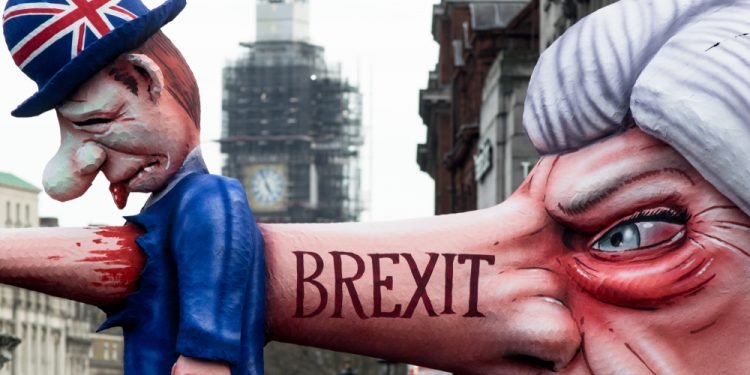A new report claims that Brexit has reduced Britain’s GDP by 5.5 percent.
Belgium, (Brussels Morning Newspaper) The report was authored by John Springford, deputy director of the Centre for European Reform (CER), a leading Brussels-based think tank. It was published on 21 December.
The period covers the second quarter of 2022 and Springford says his model “avoids the cherry-picking of data, and performs better than its critics’ methods.”
Since 2018, the CER has published estimates of the impact of Brexit on the UK’s economy. In this latest insight, the author updates these estimates with data until June 2022.
These estimates are based on the ‘doppelgänger’ method, in which an algorithm selects countries whose economic performance closely matches the UK’s before Brexit.
Those campaigning for the UK to exit the EU, as it has now done, claim the country will benefit hugely by not being in the 27-member bloc.
The report by the CER cites quarterly estimates of the cost of Brexit to the second quarter of 2022. UK GDP is 5.5 percent lower than that of the doppelgänger. Investment is 11 percent lower; goods trade, is 7 percent lower, and services trade is around the same.
The report says that the Brexit hit has inevitably led to tax rises because a slower-growing economy requires higher taxation to fund public services and benefits. If Brexit had not happened, it claims most of the tax rises that then Chancellor Rishi Sunak announced in March 2022 would not have been necessary. If the UK economy had grown in line with the doppelgänger, it says tax revenues would have been around £40 billion higher on an annual basis (if we apply the same tax-to-GDP ratio as in 2021-2 – 34 percent). In his March 2022 budget, Sunak announced tax rises of £46bn.
The shortfalls in GDP and investment are around the same as the last estimates, for the fourth quarter of 2021.
He says this suggests that the impact of Covid-19 is not substantively affecting the results, a concern he raised last time. All of the 22 countries used in the study had almost entirely reopened by June 2022, and yet Britain continued to lag behind the doppelgänger, he claims.
“And, as measured by excess deaths through the pandemic, Britain ranked in mid-table globally – so there’s little reason to believe the long-term scars on the economy are larger than in other countries, on average,” he says.
The author concludes: “Overall, we should not assume that similar-sized European countries are the best counterfactual for Brexit Britain. The ‘doppelgänger’ method avoids any cherry-picking of comparator countries, by using a statistical process to find economies that best match the UK’s.
“Nor should we assume that Brexit costs are small at present, simply because the assumptions behind long-run forecasts imply that the costs should be small shortly after the introduction of the TCA.
“And it is possible the long-run costs of Brexit might be larger than the OBR estimate, despite that institution’s authoritative position in the economic policy debate,” he says.




